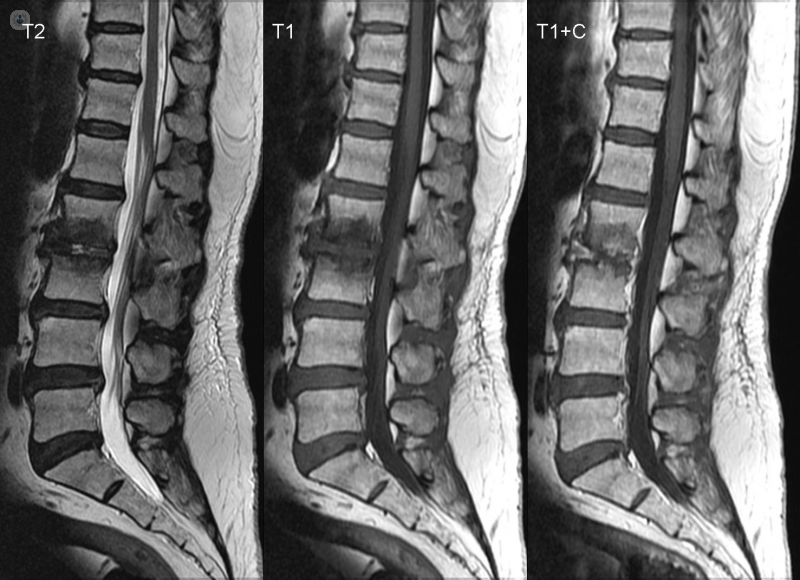

A spinal MRI is a type of scan which uses a magnetic field and radio waves to produce detailed images of your spine. An MRI is carried out by a radiologist, and is a safe procedure.

Why do I need a spinal MRI?
A spinal MRI is often advised if you suffer from back pain that won’t go away, or numbness in your legs or arms. Compared to a CT scan or X-ray, an MRI can produce a much more detailed image of your spine, giving a clear picture of the vertebrae that make up the spine, the spinal cord, discs and ligaments. A spinal MRI is therefore useful for investigating:
- any tumours present in the spine
- bone, disc or spinal cord injury
- inflammation of the spinal cord or nerves
- infection in the spine
- spinal compression or degeneration
The images produced from the scan can help to diagnose:
- slipped disc
- arthritis
- osteoporosis
- metastatic spinal cancer
However, in many cases, the doctor might need to conduct further tests to make a formal diagnosis. For example, if a tumour on the spine is found, it may not be possible to identify it as benign or cancerous with an MRI alone, meaning a further test such as a biopsy would be required.
If you already have a diagnosed condition or the doctor is already aware of a tumour present in your spine, an MRI is often used to help plan for surgery.
What to expect in a spinal MRI
For a detailed look at how MRI tests work, what you can expect, and how to prepare, see our page on MRI scans.
In a spinal MRI, the test can take between 30 and 60 minutes. The length of time depends on how much of your spine is scanned and whether a dye is used to highlight certain parts of the spine.
If a dye is used this will be administered through an IV. This can help doctors understand the images from the scan by highlighting different areas of the spine. The dye is usually safe but there may be a risk if you have problems with your kidney. You should make your doctor aware of any pre-existing conditions before they give you the IV.
Finally, because it is important that the image is as clear as possible, you might need to wear straps to help you stay still during the scan.
